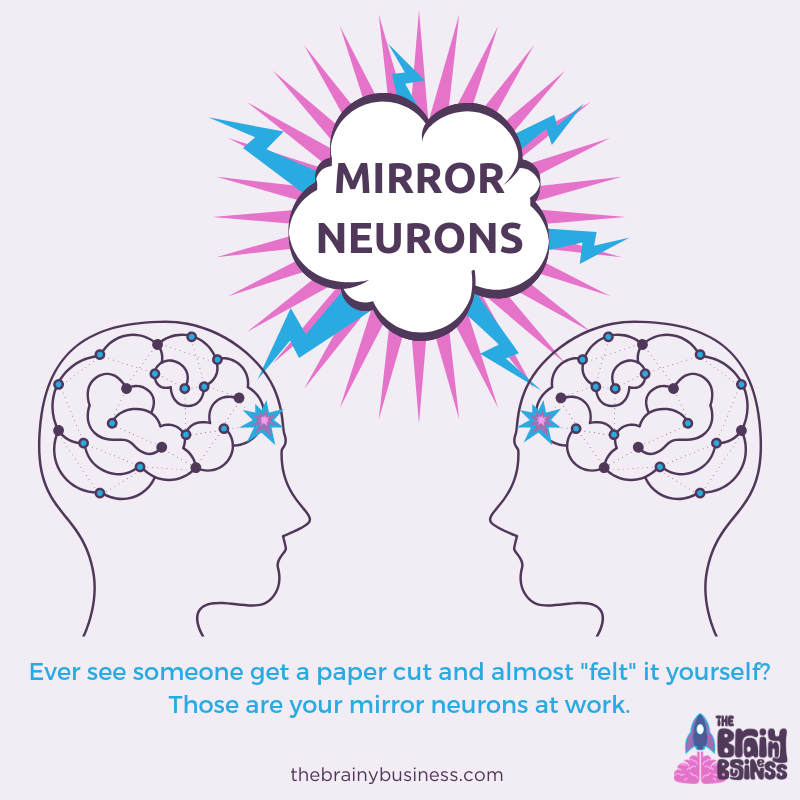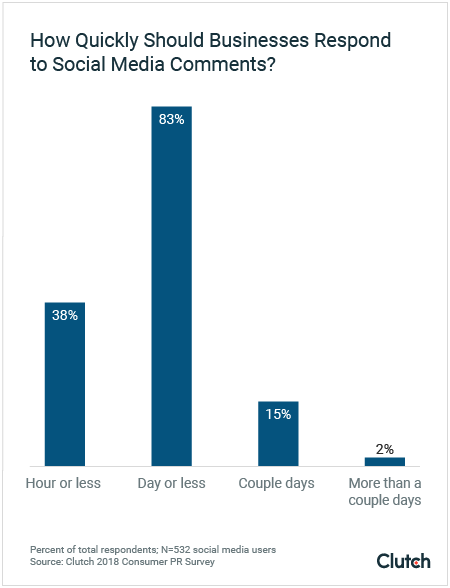Instead of using our instincts to determine whether or not the rustling in the bushes is the wind or a saber-toothed tiger, we use them to subconsciously drive our buying decisions as consumers in the modern age.
One-in-five (18%) say that they use online reviews before making a purchasing decision.
“We tend to want to know if a business is good or not,” said Nick Hobson, an organizational psychologist. “The best way to do that is to get that information through our social networks from other people.”
The importance of online reviews is rooted in how we are wired to analyze and interpret the experiences of others.
Mirror neurons make it difficult for our subconscious to distinguish between our experiences and the experiences of others – this is why when you see someone get a paper cut, you can ‘feel’ it yourself.
Mirror neurons allow us to place ourselves in someone else’s experience.
Behavioral economist Melina Palmer used flood insurance as an example of this.
“Everybody knows that they should have flood insurance if they live in a flood zone,” Palmer said. “Unfortunately, the most likely time that people are going to get flood insurance is right after they’ve had a flood or somebody they know has experienced a flood. It’s because that story helps to overcome this optimism bias that we have that things are going to go well.”
Similarly, when people look for online reviews, they want to know about other people’s experiences so they feel more secure in their buying decision. When consumers read these reviews, they place themselves in the situation being described.
“Consumers have a little fear to overcome when they’re looking to buy from a brand,” Palmer said. “These stories resonate really deep with the brain in the way that it’s wired.”
Mirror neurons allow us to empathize with the experiences of others and are part of the instincts we’ve developed over time. According to Palmer, the subconscious brain is constantly scanning the environment for red flags and opportunities.
Social media, although virtual, is perceived as another environment by our brains.
“The stimuli we have now isn’t necessarily a tiger – it’s more an overwhelming amount of information and lights to process,” Palmer explained. “Our brains are wired to look for anomalies and to be able to point out the one little quirk.”
When consumers look at online reviews, they look for anomalies and things that their subconscious will mark as a red flag.
This is why it’s important for businesses to acknowledge negative comments online – nearly half (45%) of people say they would view a company more positively if it responded to negative comments on social media.
“Being able to show how [your business] responds in a crisis is actually helpful for somebody because you get this reassurance that if something goes wrong, you will be okay and that they’ll take care of you versus being left out in the wind,” Palmer said.
This is why it is important for businesses to adopt social media as part of their marketing strategy and why it’s important for businesses to respond quickly to comments about their brand on social media.
Most people (76%) expect companies to respond to comments (positive and/or negative) about their brand on social media and 83% expect companies to respond within a day or less – this especially quick turnaround time presents many challenges for businesses.
“It’s not like we’re telling people, ‘You have to fix this immediately within a day or less or hour or less,’” said Laura Reagen, CEO of Activate Health, a healthcare public relations firm. “But your response has to make people feel like they’ve been heard.”
Responding quickly to comments on social media does not mean having to ‘fix’ the issue at hand. Acknowledging these comments on social will make the customer feel heard and will show the other potential customers reading reviews and comments that you care about your customers’ experience.
Social media has expanded the concept of community to include millions of people around the world and businesses should know that consumers are watching and passing judgments of them based on social media interactions.
Understanding how the human mind works and is wired to respond to online reviews will allow businesses to make better decisions regarding social media management in 2019.








